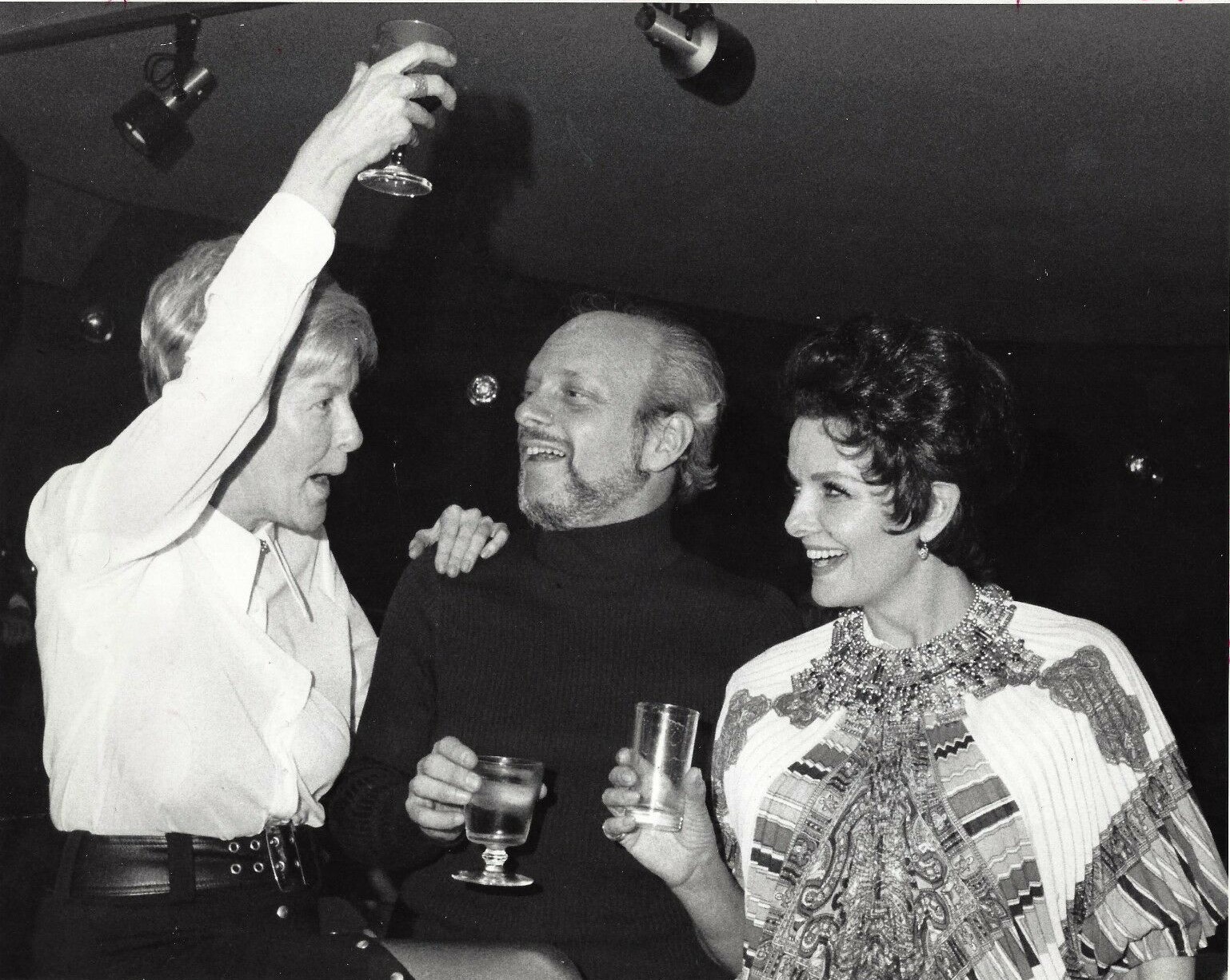
Mentions | Farewell to Sondheim
“Try a Little Priest” |
SWEENEY TODD
An unsung, if literally sung, “eat the rich” anthem — in which the diabolical Mrs. Lovett (purveyor of “the worst pies in London”) proposes disposing of Sweeney Todd’s murder victims by mincing them into her menu. The duet is routinely praised for its intricate rhyming puns on various professions (“if you’re British and loyal/ you might enjoy Royal Marine…/ though of course it tastes of wherever it’s been,” for instance, or “The trouble with poet/ is how do you know it’s/ deceased?/ Try the priest.”). But the song is also a Dostoevskian spoof of revolutionary left politics, and the ways preexisting ideologies can sometimes help us justify unsavory deeds: Mrs. Lovett’s pragmatic solution, we soon learn, appeals to Todd’s class resentment. “The history of the world, my love/ is those below serving those up above,” he sings. “How gratifying for once to know/ that those above will serve those down below.” The whole number ends with a triumphant punchline: “We’ll serve anyone — and to anyone — at all!”
R.P.
"Being Alive" |
COMPANY
A classic structural device in musical theater is the “I want” song: the number that comes near the start of the show in which a lead character proclaims what they’re after (“Not for the Life of Me” from Thoroughly Modern Millie, “My Shot” from Hamilton). But the protagonist of Company, Bobby, doesn’t know what he wants. Rather, he is trying to determine whether he is capable of wanting something, namely to get married. This endeavor culminates in “Being Alive,” an “I Want” song that comes at the end of the musical, and one which, rather than initiating a journey toward fulfilling a desire, concludes a journey toward forming one. Company dared to drive the plot of the musical inward; to tell a story about not simply wanting, but wanting to want, about striving to change one’s values as a first step toward changing one’s life. The philosopher Agnes Callard recently dubbed this tortuous and often wrenching process “aspiration”; in 1970, Sondheim captured it in lyrics. If you get married, “What do you get?” Bobby starts the song by asking. His answers are, at first, unpropitious: “Someone to hold you too close / Someone to hurt you too deep/ Someone to sit in your chair/ And ruin your sleep.” But in the last third of the song, closing the show, his infinitives become imperatives: “Somebody hold me too close / Somebody hurt me too deep / Somebody sit in my chair/ And ruin my sleep/ And make me aware/ Of being alive.”
E.A.
“No One Is Alone” |
INTO THE WOODS
This was Sondheim’s great appropriation of the Brothers Grimm, who themselves bent an ear to unlettered German peasants, for transcription of the oral tradition of their stories. Fairy-tales, then, were a low literature, or a literature which could extend from the scruples and the allegories of a class broadly thought to be without culture, yet creating for itself its own comforts and its own ethics. Like Sondheim’s, their plebian’s achievement was linguistic foremost. The eruption of a social consciousness we get in the musical (“Things will come out right, now/ We can make it so/ Someone is on your side/ No one is alone”) is original to the soon-to-be proletarians of that underclass, who in their time had their revolts against hegemony. So we might think of them — those villeins and too their folk heroes, who survive a transposition into Sondheim’s drama — as what Eric Hobsbawm calls “social bandits”: “pre-political people who have not yet found, or only begun to find, a specific language in which to express their aspirations about the world.” For Sondheim these were no mere historical stock but even us today, with a way of life and a mode of expression that was more relict than relic, retained through time and apparent again, and thus worthy of the stage.
L.M.
“Color and Light” |
SUNDAY IN THE PARK WITH GEORGE
This pointillist number, sung by the eponymous George Seurat early in the first act, unsubtly mirrors the painter’s famous technique; it turns the classic patter song (a rapid-fire, tongue-twisting showpiece usually reserved for a baritone with excellent enunciation) into a process song. In Sondheim’s iteration, the patter’s not only the point, it’s a million points. Single staccato plinks on a synth open “Color and Light,” as George recites his mantra: “Order. Design. Composition. Tone. Form. Symmetry. Balance. Harmony.” The patter song hasn’t yet become a pattern — it’s mimetic splatter: “Red red red red / Red red orange / Red red orange / Orange pick up blue / Pick up red / Pick up orange” Soon, though, the patter gets sticky, picking up pieces from the world around George and putting them into the pattern: “Dot Dot sitting / Dot Dot waiting / Dot Dot getting fat fat fat / More yellow.” (Helpfully, the character’s love interest and his primary medium are both named Dot). As the dots and Dot converge, there’s a brief moment where the verbal and musical pitter-patter coalesce into a swelling of strings that turn the staccatos into legatos, and Dot and George sing full sentences together in perfect harmony. But we’re still early in Act I. The painting and the show have barely begun. The spell breaks. Dot slams the door on her way out out out — but George can’t leave the process behind to follow her. He’s stuck, because the painting isn’t yet complete: he has to “finish the hat first/ hat hat hat hat.”
A.R.
“I Feel Pretty” |
WEST SIDE STORY
At 27, Sondheim devised the perfect complement to Leonard Bernstein’s melody. The song opens Act II on a lighthearted note, in contrast to the rising tension of Act I in which Maria, who arrives from Puerto Rico to marry a member of her brother’s gang, pledges “one hand, one heart” to Tony, scion of a rival family. “I feel pretty, and witty, and gay, / And I pity / Any girl who isn’t me today.” Three “pretties,” two rhymes; one half of a compound consonant sound that turns “pretty” to “pity” as Maria turns from the mirror to her admirers, from soliloquy to monologue. In its very simplicity, in its straightforward syntax and childlike vocabulary (“such a pretty face / such a pretty smile / such a pretty me,” “I Feel Pretty” encapsulates a self-conscious sense of romance’s improbability. It scales the grand, hackneyed, unbelievable story of Maria and Tony (and Romeo and Juliet) into the very human story of feeling suddenly, surprisingly, different: it bespeaks an ecstatic escape from the everyday that can barely be put into words.
B.S.
"Losing My Mind" |
FOLLIES
Who is the speaker of this sad ballad? Is it actually Sally, the middle-aged former chorus girl who sings it? Or is “Losing My Mind,” like many songs in Follies, meant to be understood as a pre-existing show tune performed by a character for whom it resonates? The lyrics of the song are certainly not specific to Sally’s situation (“I want you so, it’s like I’m losing my mind,” “I dim the lights and think about you”); nor does its grave tone seem suited to her high-strung disposition. Nevertheless, “Losing My Mind” captures to a tee how incessant (“The sun comes up, I think about you / The coffee cup, I think about you”), paralyzing (“Sometimes I stand in the middle of the floor / Not going left, not going right”) and isolating (“And do they know it’s like I’m losing my mind?”) her heartsickness has become. Through numbers like this one, Follies takes an ostensible weakness of the musical era that preceded Sondheim’s — the bland similarity of its numbers, written for more lucrative afterlives as standards — and plumbs its existential implications: How individual are we, really? Perhaps the universality of popular songs, rather than blurring our individuality, reflects the basic sameness of the human experience. Yet even as “Losing My Mind” hints that selfhood is generic, it affirms its subjective importance. The speaker of the song could be anyone; still, what pains her most about her heartbreak is that it has estranged her from herself. “It’s like I’m losing my mind” she repeats, ad nauseum. It’s her identity, not her lover, that she wants back most.

